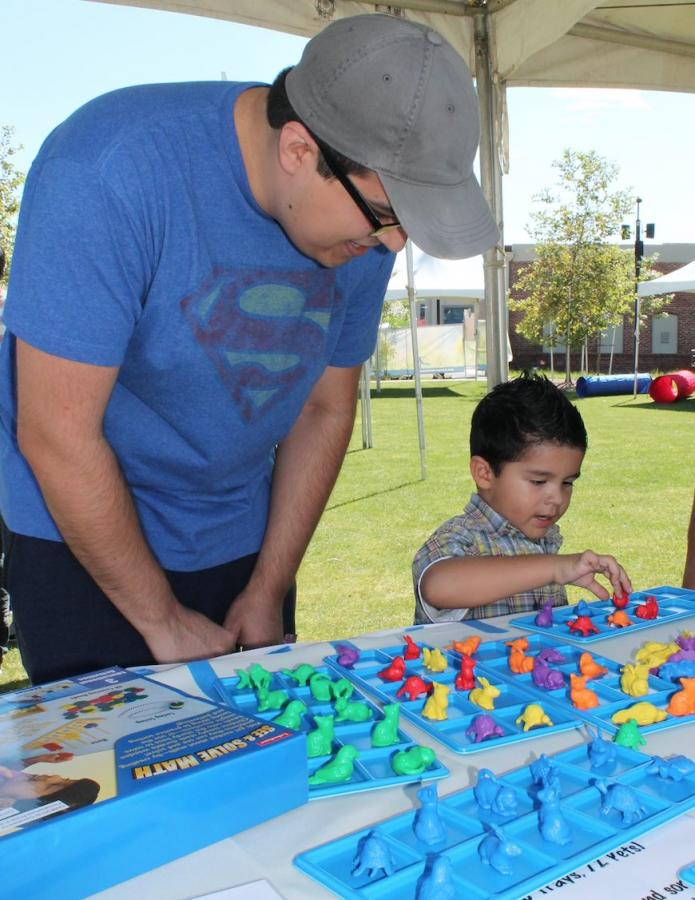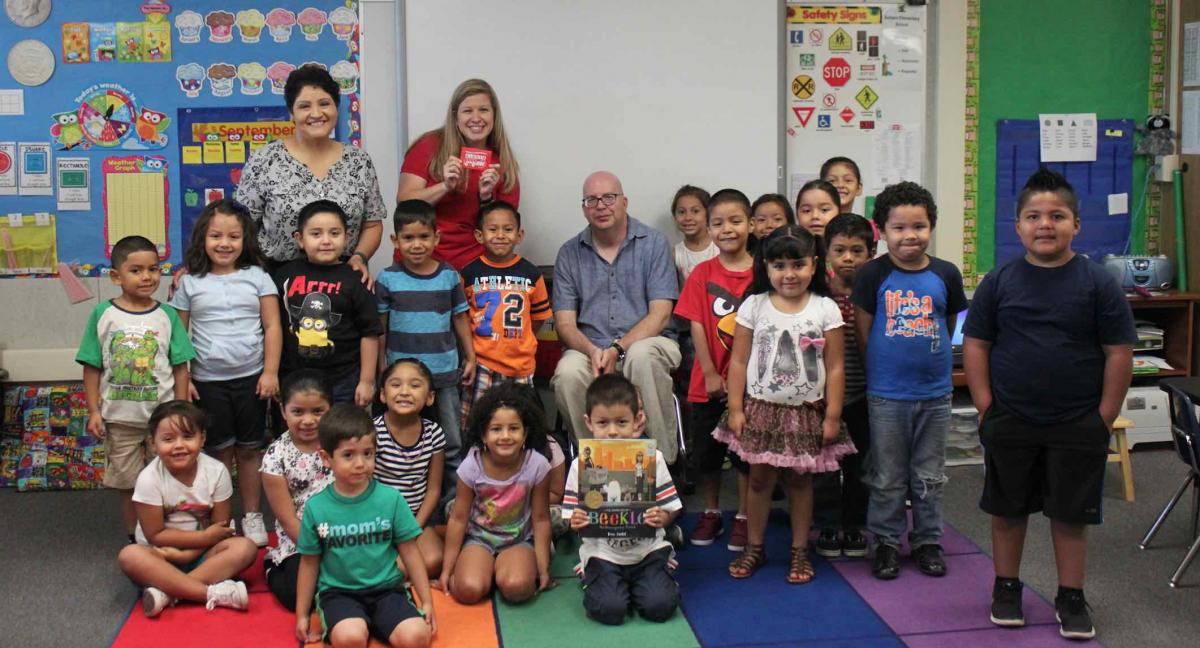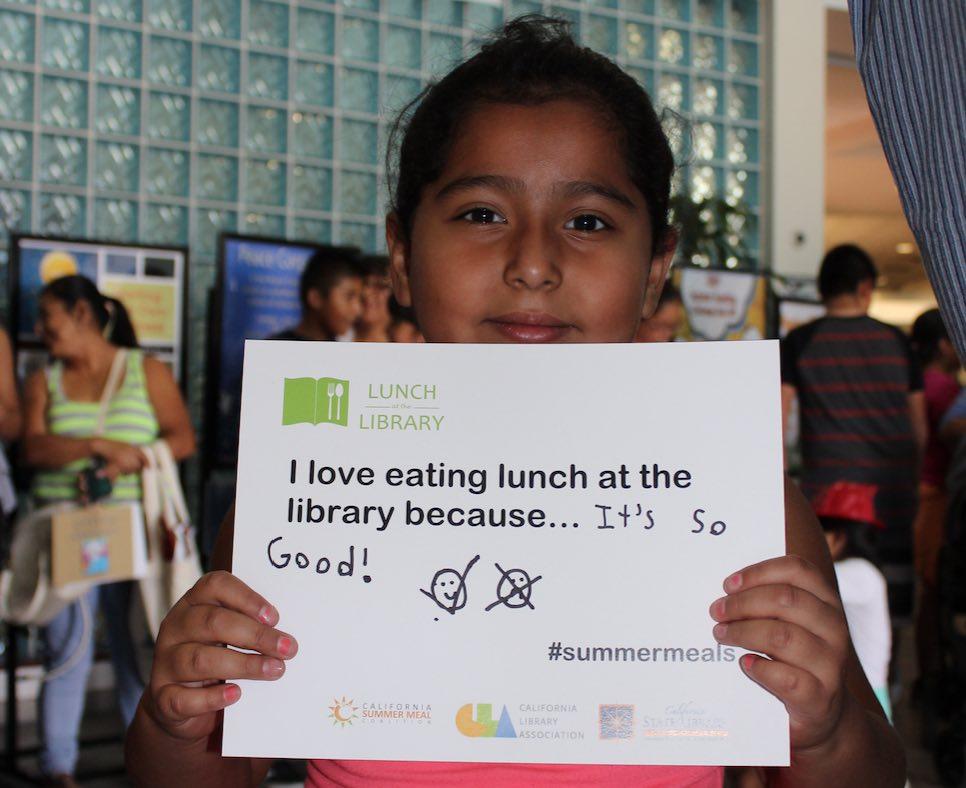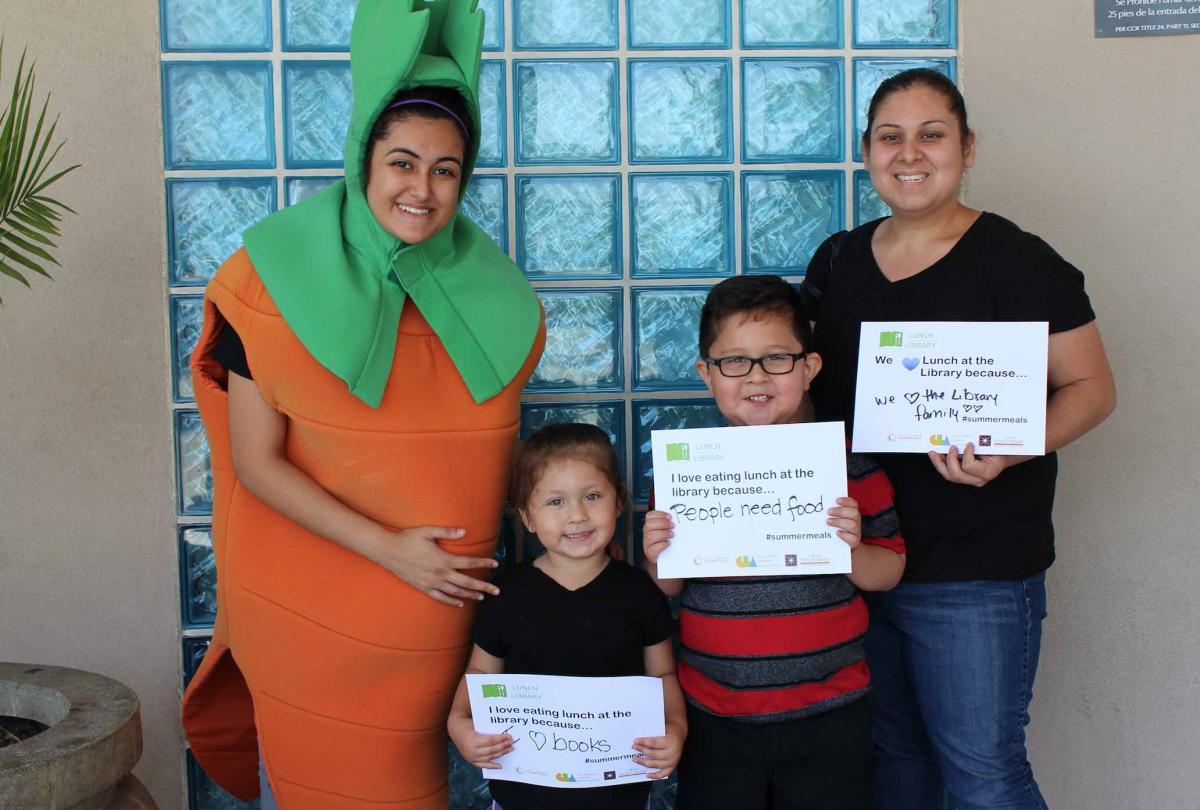Cities Collaborate to Help Give Kids a Running Start for School
Melissa Kuehne is communications and development manager for the Institute for Local Government (ILG) and can be reached at mkuehne@ca-ilg.org. Patrice Chamberlain, program manager for ILG’s California Summer Meal Coalition, also contributed to this article.
With summer coming to a close, cities throughout California have been taking steps to ensure that youths in their community are prepared for the school year ahead. Using programs ranging from truancy reduction to summer reading, cities are taking unique and collaborative approaches to combat summer learning loss and prepare students of all ages to return to school. Summer is a critical time for youth, especially in lower-income neighborhoods — students often have limited access to enrichment opportunities or safe places to congregate, and the social, learning and health support available to them during the school year is typically disrupted. The cities of Ontario, Pittsburg and Fremont provide examples of how municipal programs help keep youth on a positive path during the summer months.
Ontario Launches Citywide Effort to Increase Early Literacy
In 2015 the Ontario City Library launched KinderGO, a program to increase the number of children age 6 and younger who have library cards. The program, funded by a Library Services and Technology Act grant administered by the California State Library, provides children and families with library cards and information about library resources to boost participation in communitywide reading programs.
KinderGO’s first phase involved visiting all of the kindergarten classes in the city. The library’s Youth Services Department enlisted and trained 65 city employees from diverse departments. The city staff visited classrooms to share information about library services, read stories and distribute KinderGO bags that held a wallet, library card and various library materials. For the second activity, KinderReads, library staff chose one book to be read to all kindergarten students during the visits and provided each teacher a copy of the book with a packet of activities to be used in the classroom. KinderGO held a large-scale resource fair, KinderFair, for kindergarteners and their families as the program’s final activity. The fair featured early literacy, science, technology, engineering and math (STEM) stations, live music, costumed characters, library tours and other activities.
The program distributed 2,200 library cards. As of April 2016, nearly 300 of them had been activated and used — double the number of cards for children age 6 and younger that were active before the program was launched. The city and library are committed to continuing the program and are currently planning for KinderGO 2017.
Because 90 percent of Ontario’s school-aged children participate in the free and reduced-price lunch program during the school year, the Ontario City Library became a Lunch at the Library meal site in 2015. In the first year alone, the library served over 7,000 youths — the second-highest number served statewide.
In addition to serving between 180 and 230 meals per day, the library offers story time, movie days, “Free Book Fridays” and summer reading programs that aim to boost early literacy, combat summer learning loss and encourage all community members to read more. Funding for the summer reading program comes in part from local business community sponsorships.
The summer reading program’s third year generated an increase of 500 participants. Library staff offers this programming with the assistance of “volunteens,” local high-school students who help with Lunch at the Library meals and programming and receive school credit in return.
The Ontario City Library also hosted the statewide Lunch at the Library Kick-Off Event held June 1, 2016, which brought together local, regional and state elected officials and staff, including State Librarian Greg Lucas. Activities included child fingerprinting and community booths that provided information on summer reading programs, community gardens, the “Rethink Your Drink” campaign and Healthy Ontario.
“Kindergarten is the first time kids are a captive audience,” says Helen McAlary, director of the Ontario City Library. “If we can get library cards for all of them, we can play a supporting role through their academic years.”
“Having that library card opens the world to every child who may not be able to leave Ontario,” adds Courtney Saldana, the library’s youth services manager. “It’s all about equal access for every child.”
Pittsburg Partners to Reduce Truancy and Connect With Families
The City of Pittsburg joins a growing number of California communities where leaders are taking advantage of summer and a unique collaborative opportunity to help ensure students are ready for the school year ahead. Contra Costa County, like many counties, has been experiencing rising truancy rates, with chronic absences beginning in elementary school. Truancy increased by 8.5 percent in the 2013–14 school year compared to the previous year. This contributes to two problems — a loss of more than $1 million in Average Daily Attendance funds and a greater risk of falling further behind academically for the county’s most vulnerable students.
During the 2014–15 school year 77 percent of Pittsburg Unified School District’s students were eligible for free or reduced-price lunches, yet the district struggled to increase participation in its summer meal program. The solution lay in a city-school partnership. The school district was already partnering with the city to serve summer meals at the Pittsburg branch of the Contra Costa County Library in conjunction with the library’s summer reading program. To help take that collaboration to the next level, leaders coordinated an end-of-summer awareness event to get families ready for the start of school in August.
In collaboration with the Institute for Local Government’s California Summer Meal Coalition, Pittsburg Unified School District, the City of Pittsburg, Contra Costa County Public Health Department and other agencies hosted a free Back-to-School Barbeque for families. Held outside the Pittsburg Library, the event encouraged families to use the library while the school district provided free, locally sourced lunches to 320 families. The Pittsburg Police Department participated in the event and gave families a chance to interact with officers, participate in the child fingerprinting program, explore police vehicles and meet K-9 Officer Zed. The Contra Costa District Attorney’s Office and Contra Costa County Probation Department staff handed out free books and school supplies. Talking with parents and caregivers gave police and probation officers an opportunity to stress the importance of school attendance, increase awareness of the county’s new truancy court and build positive relationships with families. Other agencies offered nutrition education, health-care insurance enrollment information and additional community resources. And local farmers provided activities to help children learn how food is grown.
The school year can be a very busy time for working families as well as for schools and local public agencies. The more relaxed summer season offers an opportunity for collaboration and a starting point for agencies to better identify their shared interests and goals for the school year ahead. The barbeque also provided a positive experience for families that illustrated Pittsburg’s commitment to the success of its youth year round and to ensuring that students return to school healthy and ready to learn.
Fremont Engages and Empowers At-Risk Youth
The City of Fremont Human Services Department takes a collaborative approach to helping youth and families. Its Youth and Family Services Division offers child and family counseling and assessment and intervention for at-risk youth and youths on probation, as well as parenting support. Fremont’s Family Resource Center houses the division, along with more than 24 state, county, city and nonprofit agencies that provide essential community resources, including employment programs, housing information, mental health services, intensive and coordinated case management, child care information and referrals, support groups and vocational services.
To help families navigate these services, Fremont’s Youth and Family Services Division hired a family-parent partner who acts as liaison between the city and the families it serves. The partner brings firsthand experience and perspective to help families feel more respected and build their trust in the city and its programs and services. The partner’s main focus areas include mental health education, child development, local resources, advocacy and self-care. In addition, the partner helps bridge cultural gaps, helps parents develop specific skills and provides emotional support for families in times of stress or crisis.
In an effort to reach at-risk youth, the city developed the Fremont Youth Empowerment Academy. Now in its fourth year, the academy enrolls approximately 20 youth between the ages of 15 and 18 each year. The seven-week program offers elective credit, work experience and job readiness training, including résumé writing and interview and leadership skills. The academy represents a collaborative effort supported by a partnership of local school districts, the Highway to Work Program, Alameda County Center for Healthy Schools and Communities, Alameda County Probation Department officers and other community-based organizations.
“The academy was developed to provide a continuing education and work experience program for youths who are at risk during the summer months,” says Annie Bailey, Youth and Family Services administrator for the City of Fremont. “We are trying to help them catch up and get school credit and work experience so that they can graduate and have viable educational and career opportunities.”
In addition to classroom time, students enrolled in the academy spend time in the community including visiting the Fremont Senior Center to help serve meals, teach self-defense, play games and engage in intergenerational conversation.
In 2015 academy students worked with award-winning urban artist Cameron Moberg to create a community mural. The Fremont Art Guild made a generous donation to cover the cost of the materials for the mural, which is currently on display at the Alameda County Juvenile Justice Center.
“The partnership began a few years ago under the leadership of the city, with officials saying, ‘Every student is important — how can we can work together to empower them, help them and make sure they are having a really great summer experience?’” says Jim Morris, superintendent of Fremont Unified School District. Morris enthusiastically supports the program and has delivered the commencement speech each year for the Fremont Youth Empowerment Academy graduating class.
How Your City Can Get Involved
Cities throughout California are finding innovative, collaborative ways to ensure that the youths in their community are ready to go back to school. Find tips on getting involved in “How to Start a Summer Meal Program in Your City” or visit www.ca-ilg.org/summermealcoalition.
How to Start a Summer Meal Program in Your City
- Assess the needs of families in your community during the months when school is out and the availability of local summer meal programs;
- Explore the extent to which your libraries, parks and recreation sites or other public facilities can become summer meal sites;
- Promote the availability of summer meal programs to the community;
- Convene city, school and community leaders to identify strategies that address childhood hunger, and establish a work group to plan and help implement these strategies;
- Partner with community organizations that serve summer and after-school meals;
- Sponsor an after-school or summer meal program; and
- Host or participate in a community kick-off event to help raise awareness of and increase participation in your city’s summer meal program.
For more information about summer and after-school meal programs, visit http://bit.ly/meal-info.
About Lunch at the Library
Keeping children healthy, fed and engaged during summer months is the goal of Lunch at the Library programs. The California Summer Meal Coalition and California Library Association work with libraries statewide to offer summer meals and prevent summer learning loss in low-income communities.
These programs do more than just provide meals. Activities at Lunch at the Library sites include welcoming guest readers, distributing back-to-school supplies and books and providing nutrition education, such as container gardening and how to make healthy snacks and smoothies. To find out more about summer meal programs and how your city can get involved, visit www.ca-ilg.org/summermealcoalition or http://lunchatthelibrary.org.
Additional Resources
https://www.fremont.gov/2458/Fremont-Youth-Empowerment-Academy
https://www.youtube.com/watch?v=Xg35ypDGUcw
http://www.cde.ca.gov/ds/sh/sn/summersites.asp
Photo credits: City of Fremont Mural - Courtesy of the City of Fremont and Institute for Local Government; City of Ontario photos of kids - Courtesy of the City of Ontario and Institute for Local Government
This article appears in the August 2016 issue of Western
City
Did you like what you read here? Subscribe
to Western City






